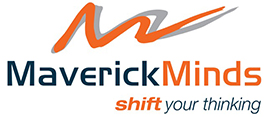Why reflect, what are the benefits, and why should we value it? One major reason is to counter the affliction of busyness.
The busyness badge of honour has become ubiquitous. When people ask others “how they are?” the response is so often ‘busy’ and ‘under the pump’.
Most of us desire to have a fulfilling and meaningful life. However, it appears in the busyness, many of us go from one thing to another with little time for deep thinking.
There is minimal time to actively reflect on what we do, why we do it and what we learn from our experiences.
This happens regularly in the workplace with people running from one meeting to another leaving no time to catch your breath.
No time to reflect on the quality of the meeting, the way people engaged, and how decisions were made.
Teams take little time to reflect on how they are functioning. There is much to be gained and learned if we stop to ‘intentionally reflect’. Reflection generates awareness for how we experience situations.
 Consciously using an experiential learning cycle provides a way to make sense of our experiences from different viewpoints:
Consciously using an experiential learning cycle provides a way to make sense of our experiences from different viewpoints:
- We have an experience individually or as a group;
- Reflecting on the experience allows us to consider how we felt, what we saw, or thought about via this meaning making process;
- We theorise or generalise about the experience, possibly compare the current experience with previous ones. What are the similarities and differences? If we remain curious, we can consider what we have become aware of, what insights have emerged, and as a result, what knowledge is available now that wasn’t before.
- We can apply this new learning into other contexts.
When we are in a constant state of busyness, with little or no time for active reflection, we miss the opportunity to make worthwhile behavourial, process or system changes from what we have learned.
Individual and group reflection are very powerful aspects of the learning process and easily forgotten when focused only on tasks.
There are reflective approaches we can apply. Most importantly it requires a mindset and culture that values reflection.
Here are some reflective viewpoints:
- Pre-flection: prior to an experience we start the reflective process. Reflections may be based on previous experience or we may be arriving to a blank canvas, a brand-new experience. We turn our awareness to our thoughts, feelings and way of being. Notice where you are now, as to how you may be after the experience.
- Reflecting-in-action: We are in the experience and can observe ourselves and others. This takes awareness, skill and presence to be in the moment, to be responsive and still be part of what is taking place. It requires us to be deliberate and intentional. I liken this aspect of reflection to Ron Heifetz’s adaptive leadership metaphor about ‘getting on the balcony’ and ‘being on the dance floor’. “Being in the midst of action requires the ability to gain some distance from those on the ground events” (Heifetz, Grashow and Linsky, 2009). Moving skillfully between the dance floor and the balcony gives us much more scope.
- Reflecting-on-action: An opportunity to reflect after the experience and to turn that insight or new information into knowledge. This too requires intentionality. Take time to consider what has happened and how you can apply what you have learned into other contexts.
- Reflection-Out-of-Action: This is a new one for me in terms of giving this type of reflection a name (This is Service Design Doing TSDD, 2018). Many of us know the ‘aha’ moments when doing other things like exercising, being in nature, drawing, doodling (that’s a big one for me) and mindfulness or meditation practice. Therefore “it would make a lot of sense to mix in methods and processes to support in-action time and intentionally plan time for out-of-action reflection” (TSDD). Out-of-Action Reflection can be built into workshops, planning sessions, team projects and meetings.
You may think that ‘reflection’ seems counter intuitive when you are so busy! However, I have worked with clients, and while there may be initial discomfort and resistance to slowing things down, it pays off in terms of better relationships, decision-making, creativity and minimising conflict. I have seen the positive results when individuals, teams and organisations create time for critical reflection.

